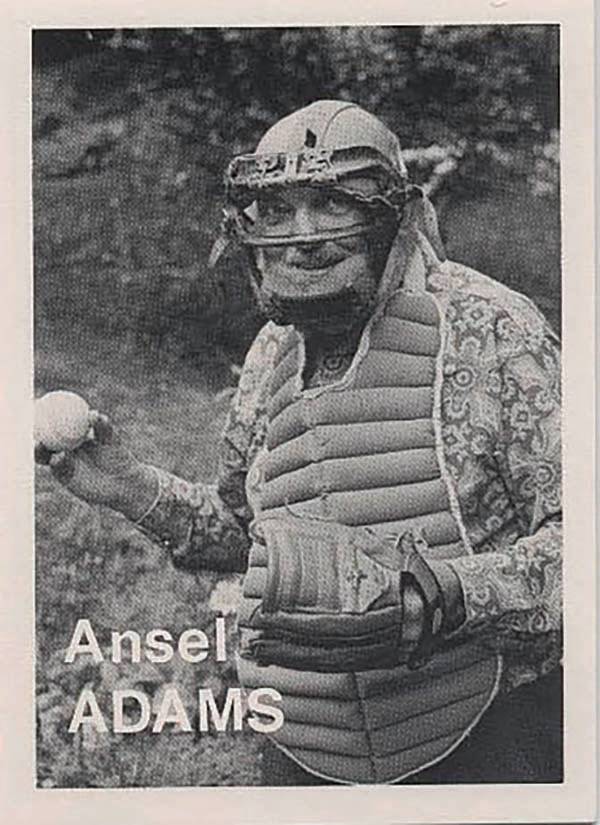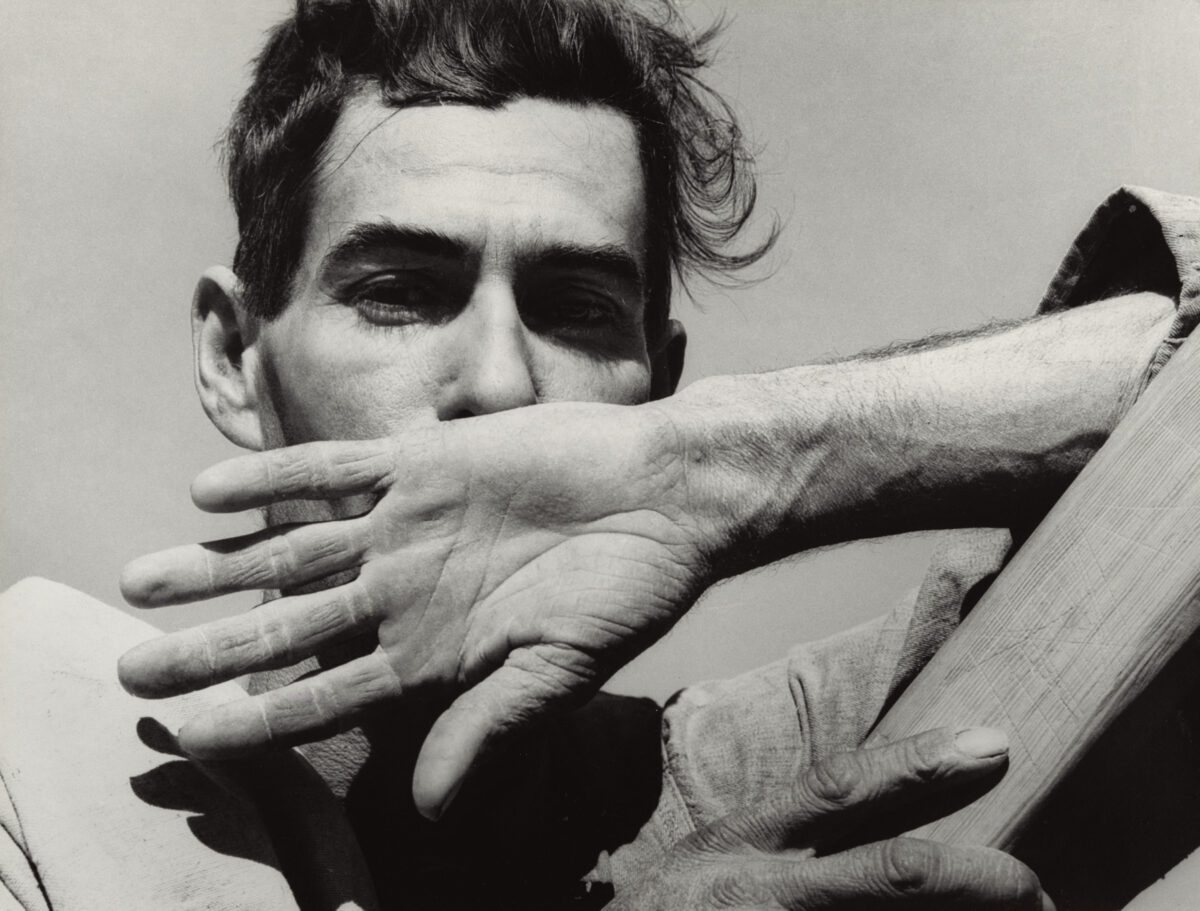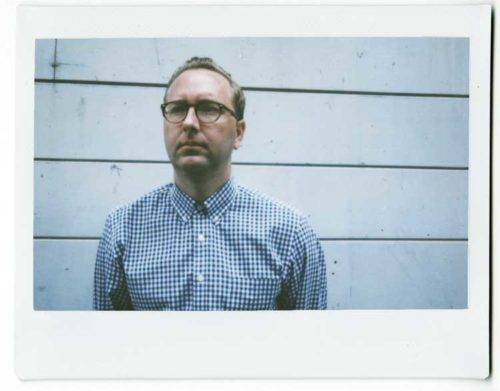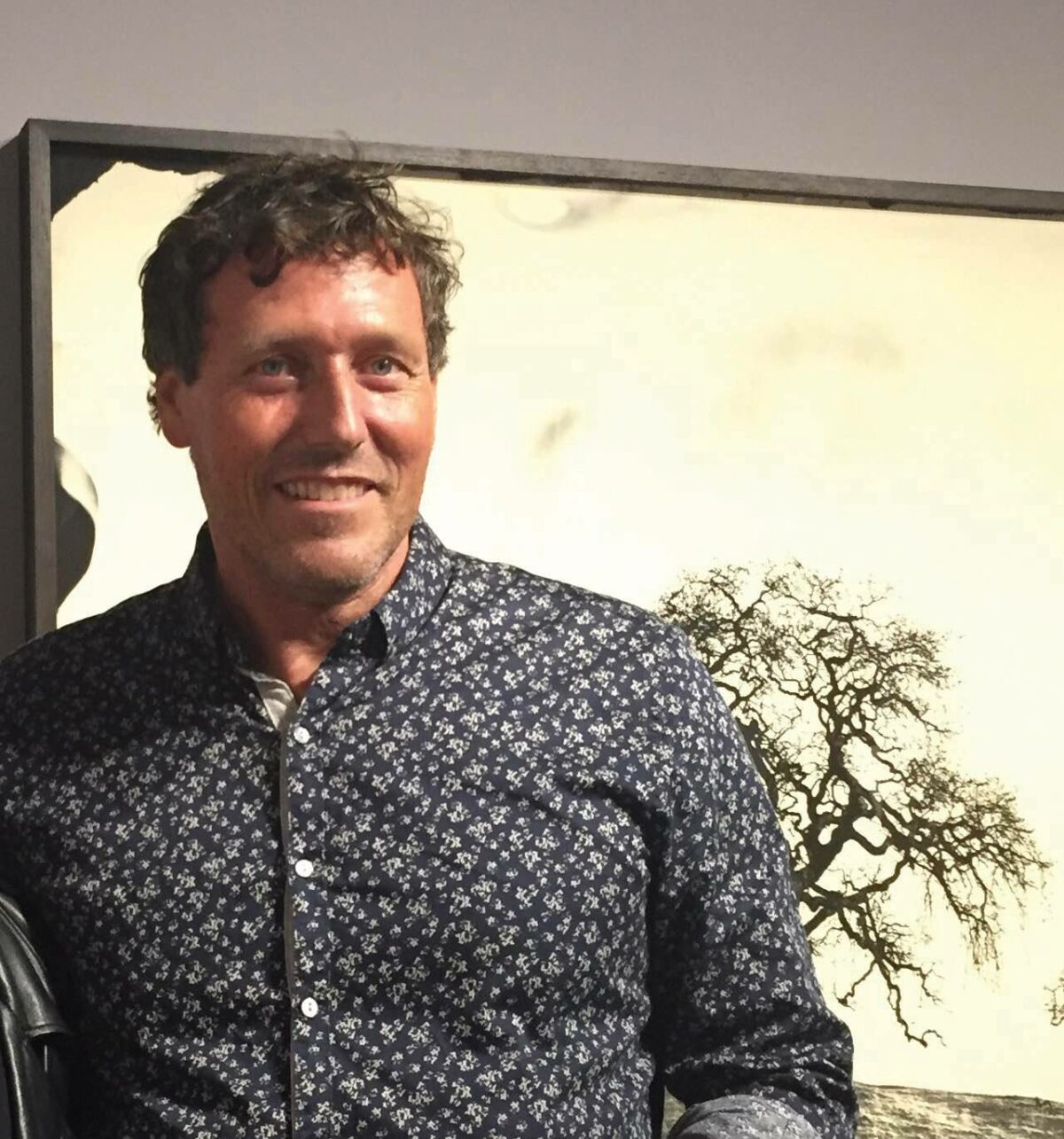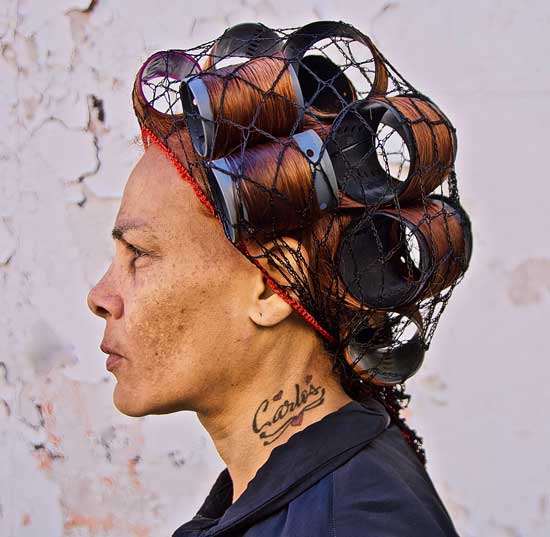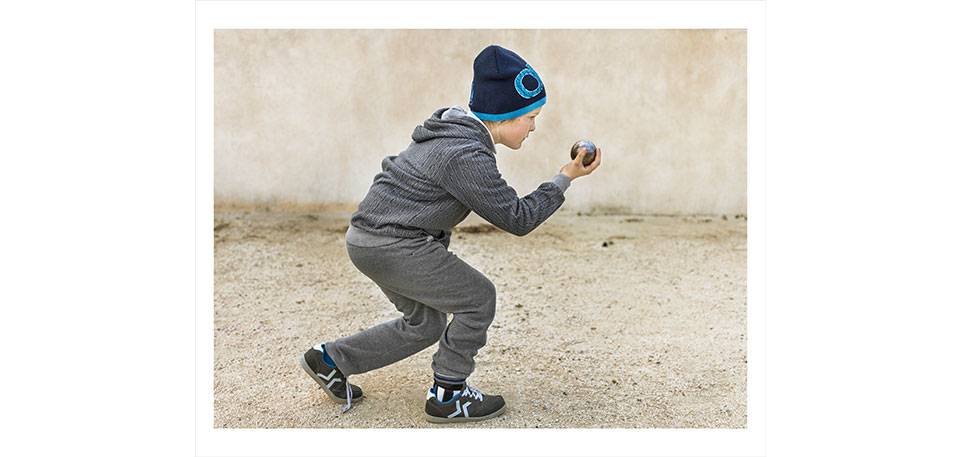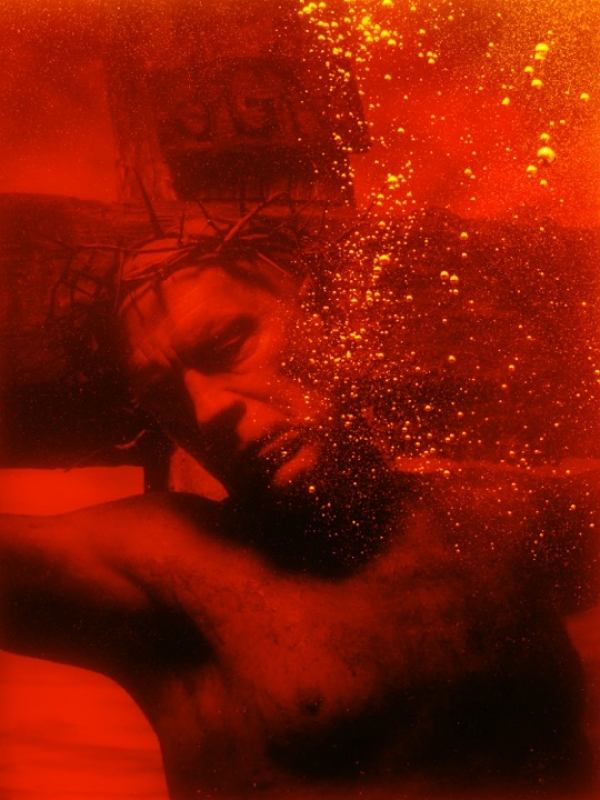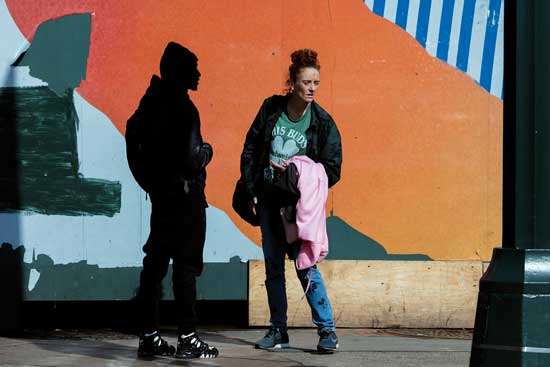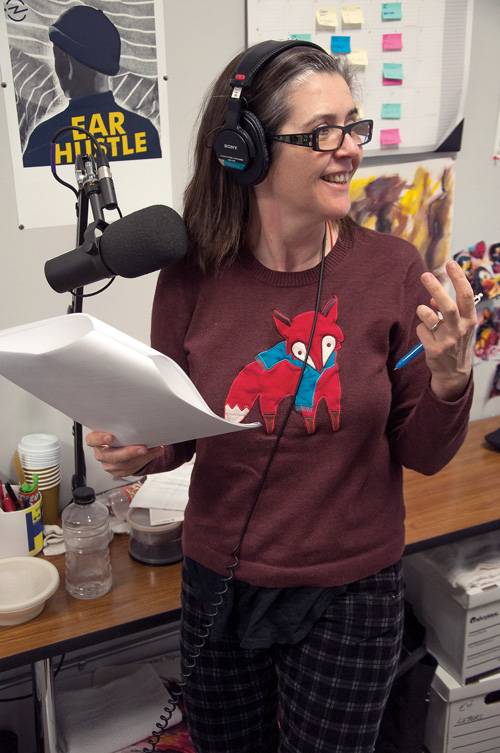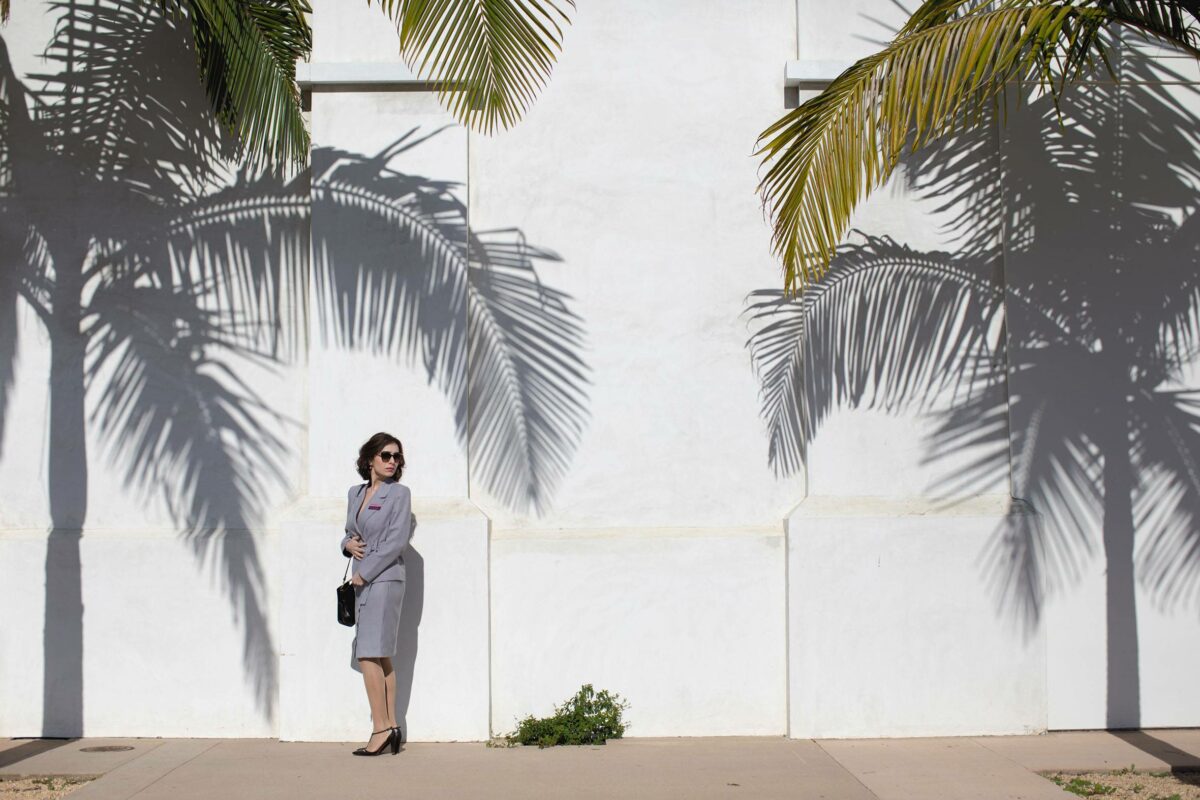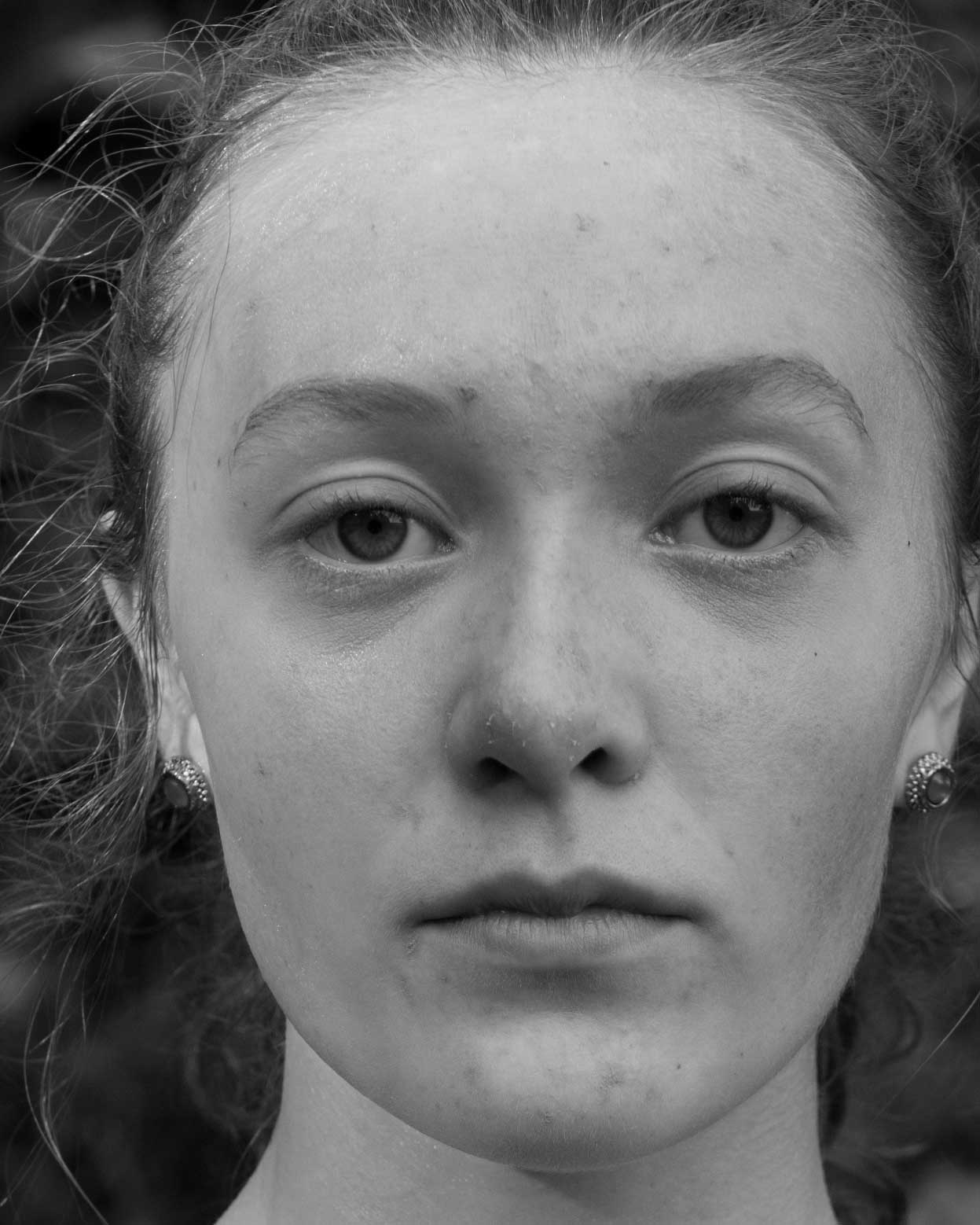

Character Study featured six photographers who have each returned over time to specific subjects – lovers, spouses, children – models with whom they have intimate connections. It’s a practice that might offer a greater insight into a given subject’s character, yet the underlying theme was the romantic idea of the muse.
The show began with nine silver-gelatin prints comprising Sam Contis’s After Practice (Maryanne), 2018-2019, depicting a young woman whose face fills the frame in each shot. Maryanne is a member of a Pennsylvania high school track team that Contis has been photographing for some time, but otherwise her relationship to her subject is ambiguous. The repeated visage, with evidence of youthful acne, is intimate but inscrutable. In its wavering composition, from picture to picture, it plays like a more relaxed version of Roni Horn’s You are the Weather, 1994–95, her more exacting close-up photographs of one woman, Margret.
There’s a more concise narrative to the relationship in Nobuyoshi Araki’s Sentimental Journey, 1971/2015, eight photographs of his first wife, beginning with an image of a traditional wedding photo and continuing with images of sex, hospital stays, and untimely death, moments only available to an intimate. The same is true of Sally Mann’s abstracted nudes of her husband, taken between 2004 and 2008, which show a body softened by muscular dystrophy. Mann’s antiquated processes give the works a sepia warmth that also alludes to human imperfection and physical weakness.
Ryan McGinley and Jim Goldberg both employed a fractured, collage-like approach to portray a partner, and daughter, respectively. My, Marc, 2015-2019, is McGinley’s bulletin-board-like constellation of breezy, sensuous images of Marc. Lithe, stylish, and often nude, Marc is playful and smiling. Even an image of him with a bloody nose retains a sunny demeanor. Goldberg’s more conventionally displayed series (framed individual prints and drawings) tracks his daughter Ruby from second grade to college graduation. The images are diverse – a glittering, red-lit empty stage, Talent Show, 1998/2019, evokes a performance of childhood, while subsequent pictures trace chronological growth – and the mixture of snapshots (taken by a seasoned photographer) and more artfully composed and embellished images form an evolving meditation on family ties.
Four pictures by Paul Mpagi Sepuya depict Darren, in 2006, 2011, and 2018 – with whom Sepuya had a 12-year affiliation. Though nudity conveys intimacy, there’s no specificity to the relationship. Two photographs are conventional portraits, while the others add a specific interrogation of the gaze: Darren, September 8, 2011, is a picture of a framed 8×10-inch photograph of the figure, flanked by curls of drying orange peels, and Darkroom Mirror (_2210146), 2018, shows Darren, naked, photographing himself, owning his image. This piece serves as the show’s elliptical punctuation – the muse/subject and photographer engaging a complex, mercurial, eroticized relationship.

